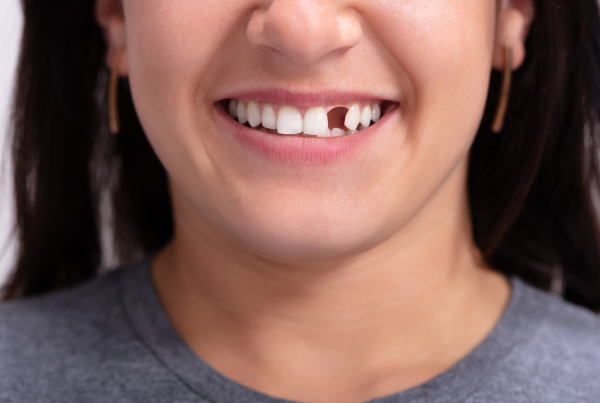Tooth sensitivity can affect one or multiple teeth and may cause a sharp and sudden pain that can be pretty unpleasant. Most cases of tooth sensitivity occur if you eat something very hot or cold, or food that is very sweet or sour.
Sometimes even breathing in cold air can be enough to set off pain that can feel as if it is reaching deep into the nerve endings in your teeth.
What Causes Tooth Sensitivity?
There are various reasons why you might develop sensitive teeth, and it can be caused by receding gums, leaving your tooth roots exposed. Your tooth roots are covered with a layer of cementum which is much softer than tooth enamel and is soon eroded, eventually exposing dentin. This is the inner part of the tooth and consists of lots of tiny tubules that lead directly to the centre of the tooth and all the nerves. These tubules allow anything that could cause sensitivity to easily reach the central part of your tooth, resulting in pain. Identifying the cause is the first step toward finding the right tooth sensitivity treatment.
Tooth sensitivity can also be caused by general wear and tear, particularly if you grind or clench your teeth, as this can wear away tooth enamel and expose your dentin. Untreated tooth decay can have the same effect, as can any teeth that may be damaged or chipped. In such cases, a professional tooth sensitivity cure may be necessary to restore comfort and protect your oral health.
If you have used over-the-counter tooth whitening products, then you may experience tooth sensitivity. It can also be down to your age, as teeth are more sensitive between the ages of 25 and 30.
Other causes include acidic foods that have caused your tooth enamel to become eroded, and sometimes recent dental work can cause temporary tooth sensitivity. If you recently visited our dental practice for a new crown or perhaps a filling, then your teeth might feel slightly more sensitive for a while afterwards. If the discomfort continues, we can help determine the best tooth sensitivity treatment tailored to your needs.
Treating Tooth Sensitivity
If you are overdue for a checkup with Dr. Larry Leslie then it’s a good idea to find out if your tooth sensitivity could be caused by any untreated dental problems. For example if we find any fillings or areas that have become worn down then we can restore these teeth which can help reduce sensitivity. If we think the problem is being caused by clenching and grinding, we may suggest you use a custom-made mouthguard at night to prevent your teeth from contacting so they cannot become any more worn or chipped.
Otherwise there are various ways to control tooth sensitivity and one of the easiest is to use toothpaste especially designed for sensitive teeth. By regularly using these toothpastes, you can gradually block up the tiny tubules in exposed areas of dentin and over time your teeth will begin to feel less sensitive.
One thing to bear in mind about these toothpastes is that you will need to use them for several weeks for the full effects to build up and you will need to continue using them to maintain the benefits. Another thing you can do is to watch what you eat and to try to avoid consuming lots of highly acidic foods and drinks.
There will always be something we can do or suggest to help with any tooth sensitivity issues so please just ask us for help and advice.
Request an appointment with this convenient online form
* Source: US National Library of Medicine, www.ncbi.nlm.nih.gov/pubmed/20522131





